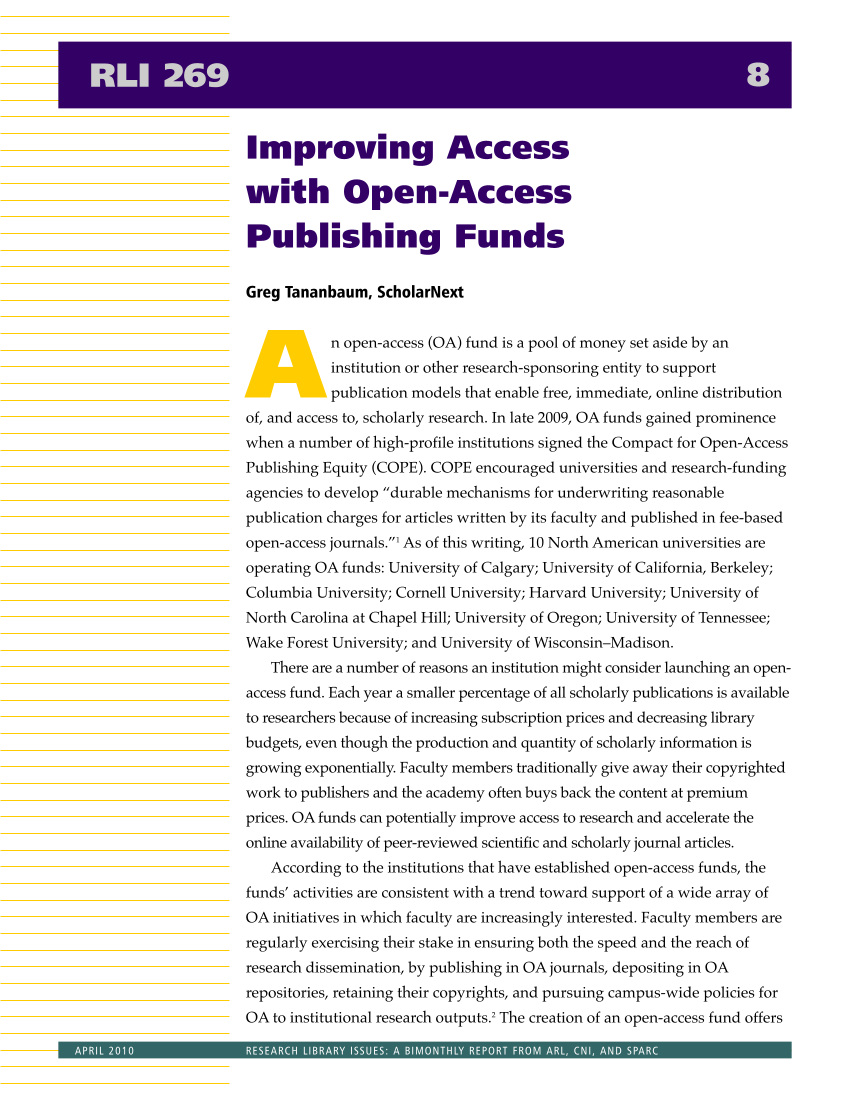Improving Access with Open-Access Publishing Funds Greg Tananbaum, ScholarNext A n open-access (OA) fund is a pool of money set aside by an institution or other research-sponsoring entity to support publication models that enable free, immediate, online distribution of, and access to, scholarly research. In late 2009, OA funds gained prominence when a number of high-profile institutions signed the Compact for Open-Access Publishing Equity (COPE). COPE encouraged universities and research-funding agencies to develop “durable mechanisms for underwriting reasonable publication charges for articles written by its faculty and published in fee-based open-access journals.”1 As of this writing, 10 North American universities are operating OA funds: University of Calgary University of California, Berkeley Columbia University Cornell University Harvard University University of North Carolina at Chapel Hill University of Oregon University of Tennessee Wake Forest University and University of Wisconsin–Madison. There are a number of reasons an institution might consider launching an open- access fund. Each year a smaller percentage of all scholarly publications is available to researchers because of increasing subscription prices and decreasing library budgets, even though the production and quantity of scholarly information is growing exponentially. Faculty members traditionally give away their copyrighted work to publishers and the academy often buys back the content at premium prices. OA funds can potentially improve access to research and accelerate the online availability of peer-reviewed scientific and scholarly journal articles. According to the institutions that have established open-access funds, the funds’ activities are consistent with a trend toward support of a wide array of OA initiatives in which faculty are increasingly interested. Faculty members are regularly exercising their stake in ensuring both the speed and the reach of research dissemination, by publishing in OA journals, depositing in OA repositories, retaining their copyrights, and pursuing campus-wide policies for OA to institutional research outputs.2 The creation of an open-access fund offers RLI 269 8 APRIL 2010 RESEARCH LIBRARY ISSUES: A BIMONTHLY REPORT FROM ARL, CNI, AND SPARC





















